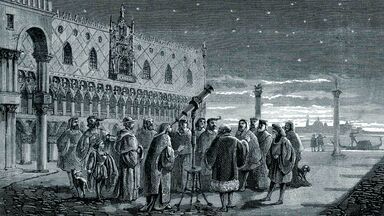Fermat's Last Theorem Definition
fĕr-mäz
noun
The theorem that the equation an + bn = cn has no solutions in positive integers a, b, c if n is an integer greater than 2. It was stated as a marginal note by Pierre de Fermat around 1630 and not proved until 1994 by the British mathematician Andrew Wiles (born 1953).
American Heritage
Find Similar Words
Find similar words to Fermat's last theorem using the buttons below.





